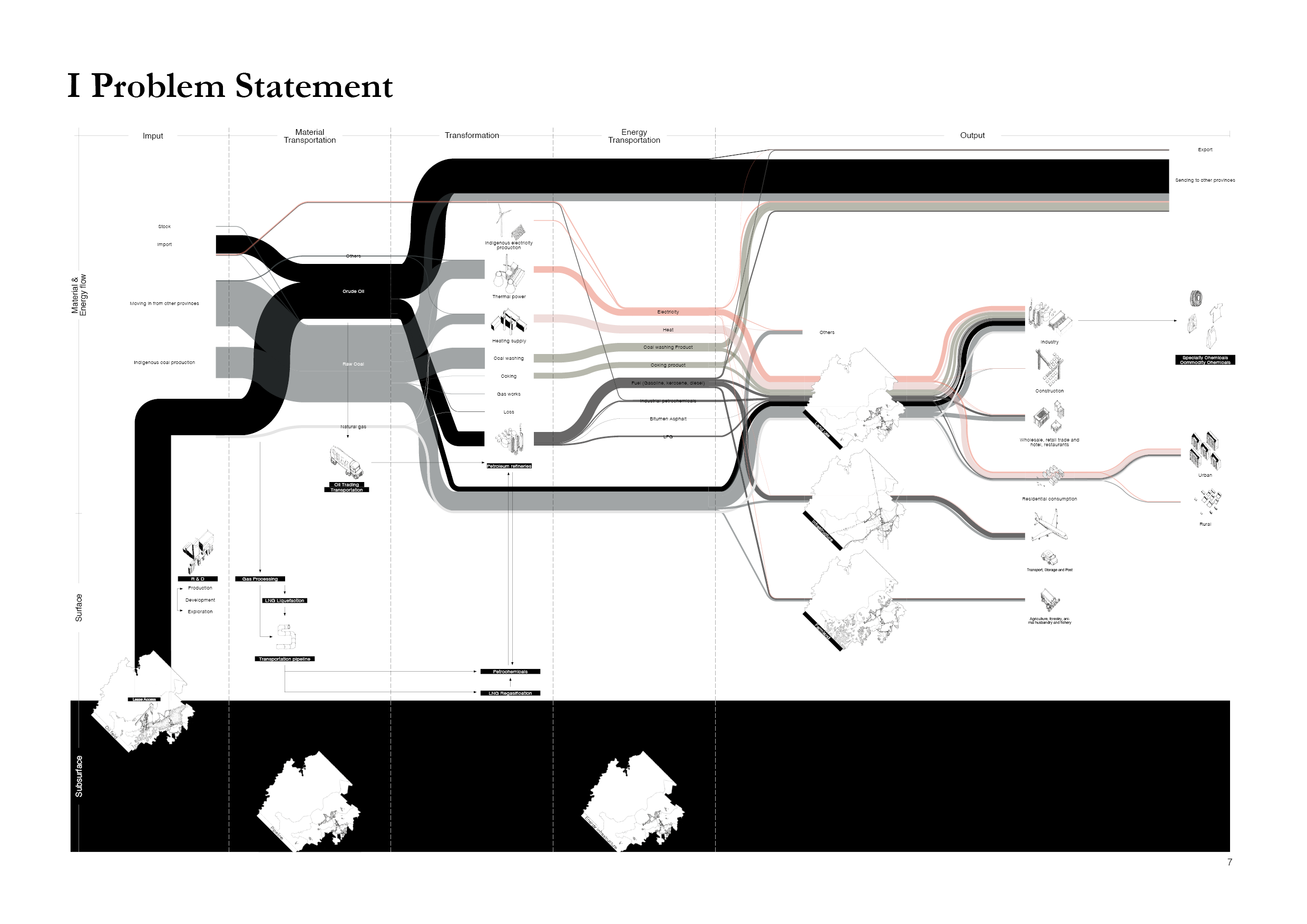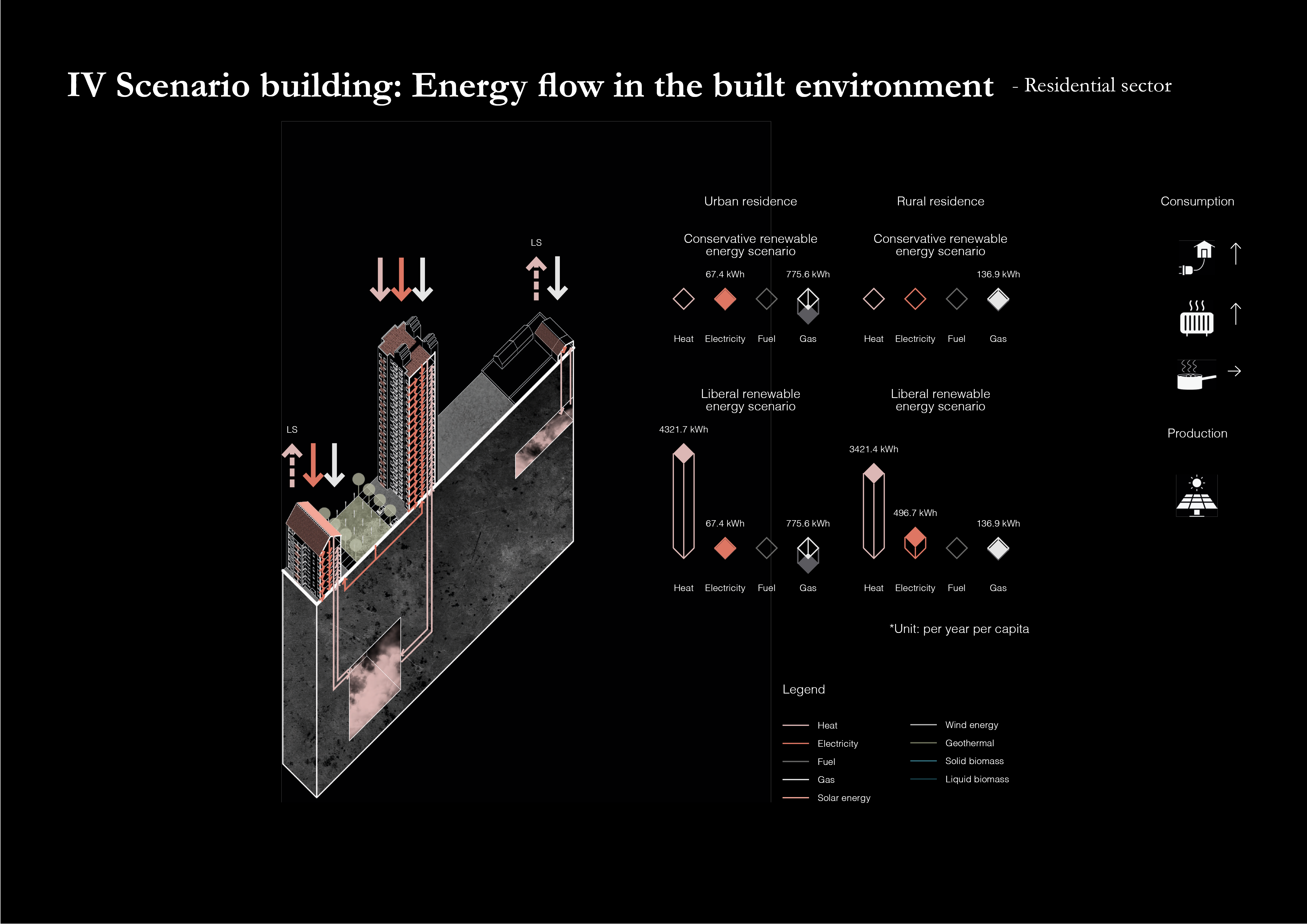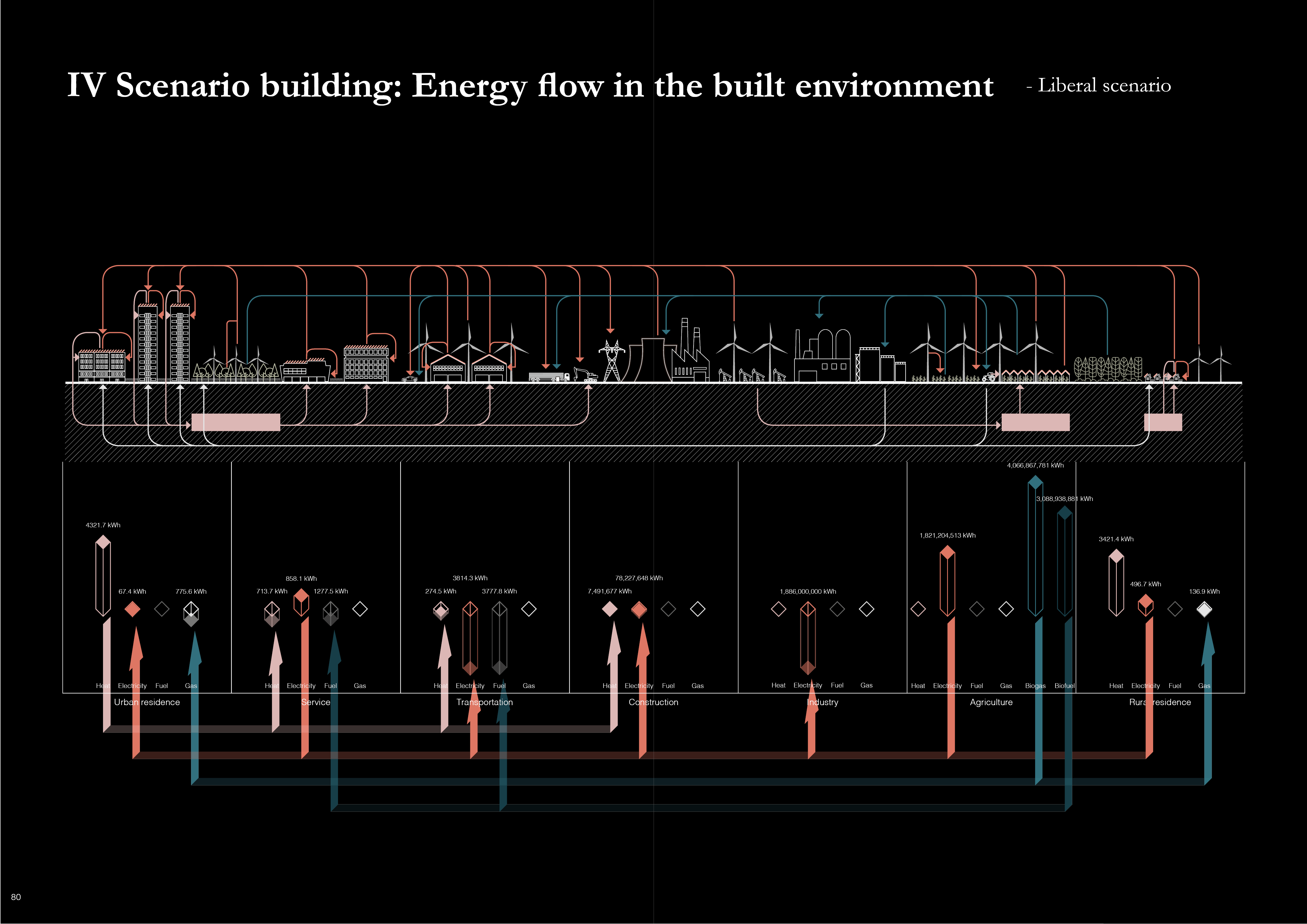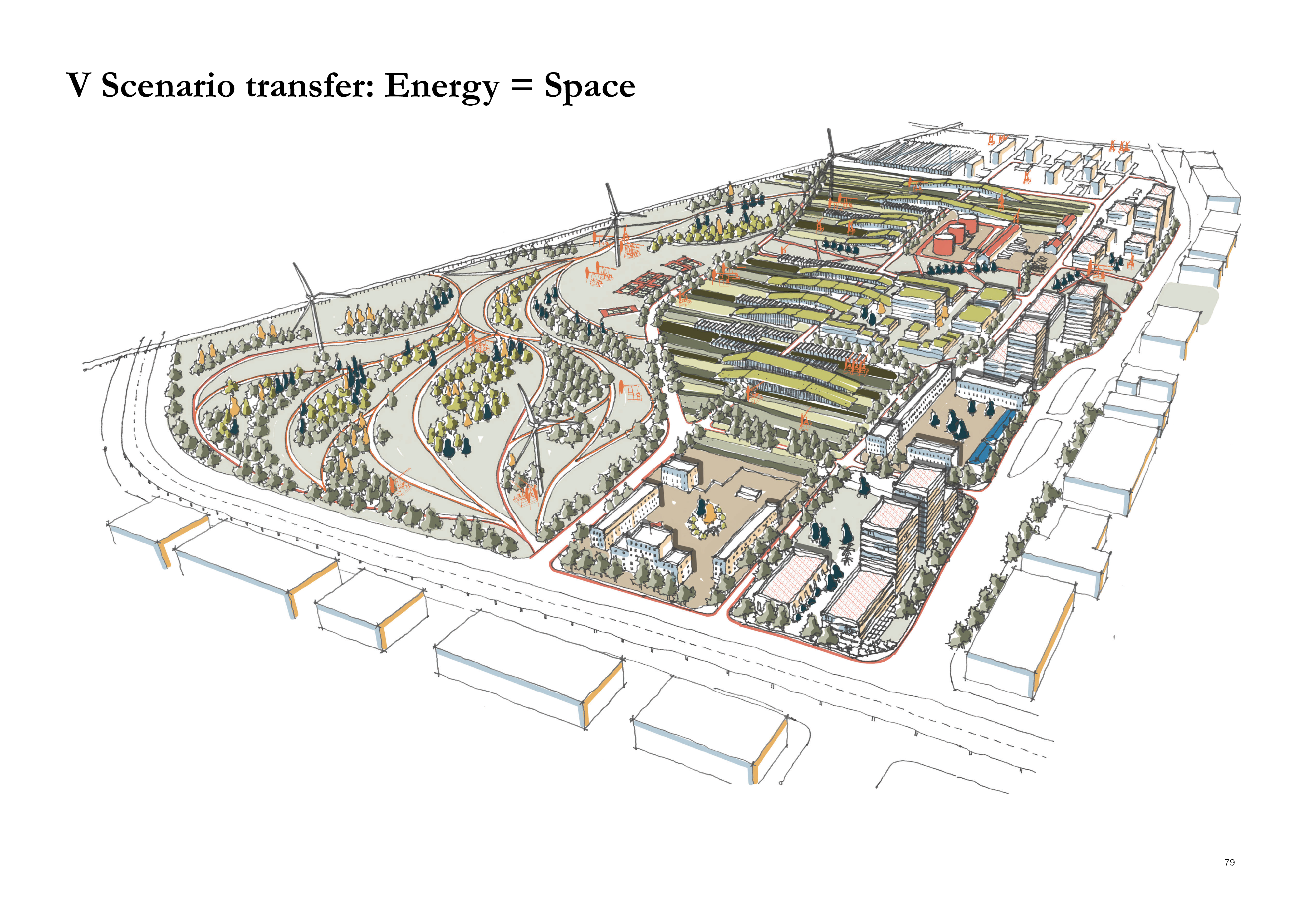Combining Energy Landscape Theory and Scenario Planning in a Post-petroleum Planning of Daqing
Student: Xue Cui
Mentors: Alexander Wandl, Nico Tilie
Program: MSc Urbanism
Graduation date: 22/01/2019
Abstract
As petroleum depletion and climate change becoming evident, it is relevant for urban designers and planners to think within a new energy paradigm contextualized by post-petroleum era. This report combines drosscape and energy landscape theory with post-petroleum planning, and tests this proposed method in Daqing, an oil city located in the northeast fringe of China. The present conditions of Daqing are analysed to provide a comprehensive understanding of the situation. Scenario building is then applied as a scholarly research method to deal with the future uncertainties in the hypothetical post-petroleum context, and picture spatial consequences of Daqing powered by renewable energy. Among the possible futures, two scenarios concerning renewable energy supply a base, upon which series of spatial strategies are delineated. This report is a research-based design – an experiment of using landscape (especially the abandoned petroleumscape) to facilitate renewable energy production and pursue urban economic and energy resilience, while improving the spatial quality of Daqing.
Subject
Petroleumscape
Post-petroleum planning
Energy landscape
Drosscape




